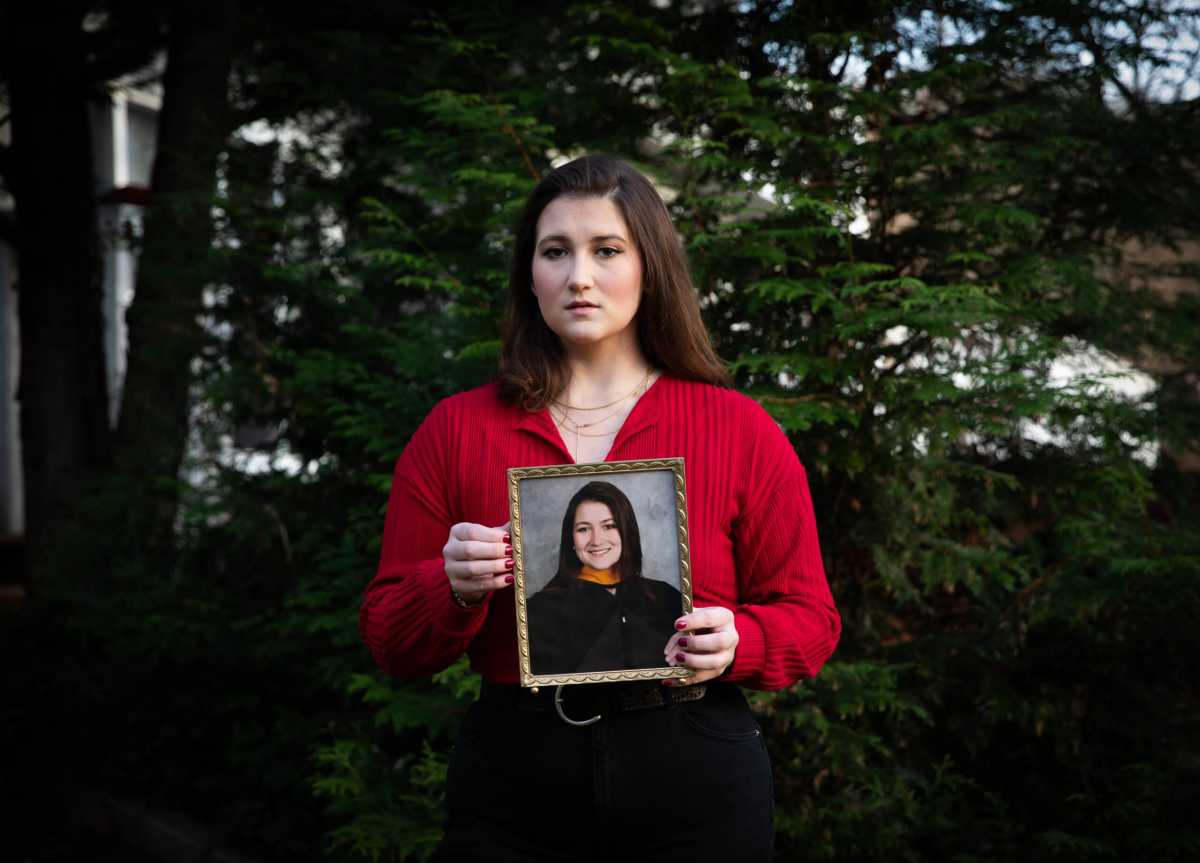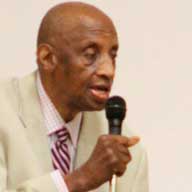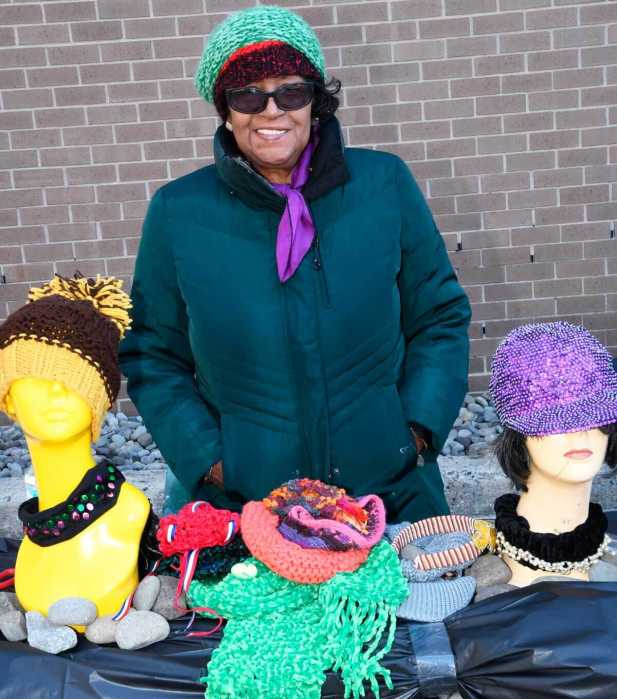Julianna Czernyk said that her rape at an off-campus Bronx apartment near Fordham University on the night of Oct. 24, 2020, caused the spiraling of her mental health and delayed her educational pursuits by a full year. The 22-year-old told the Bronx Times that while she was suffering the trauma of a sexual assault and subsequent investigation by Fordham University, and lack of follow-through from the local police, the man she alleges raped her while she was unconscious, has continued to advance his burgeoning law career.
“I’m a victim and everyone labels me a victim and everyone’s going to label me as such, but I am also a survivor,” said Czernyk, who was in her senior year at the time of the alleged incident. “I survived the trauma, I survived the rape. I’ve survived the prevailing mental health problems that he caused me.”
Czernyk is taking her story to the Bronx Supreme Court, filing a civil suit on Nov. 5, 2021, against Michael Bongiovanni — currently a law student at New York Law School following an internship he held with the New York State Supreme Court — on charges of gender-motivated violence, assault/battery, and intentional infliction of emotional distress.
According to the civil complaint, Czernyk never met Bongiovanni before the night of Oct. 24, 2020, but he raped her and attempted to silence her from notifying Fordham and local authorities. The suit also alleges that Bongiovanni had sex with Czernyk while she was completely incapacitated.
Czernyk alleges that Bongiovanni lured her to his apartment that night to smoke marijuana. There, she vomited for hours in his bathroom, stumbled out unable to walk, when he convinced her to sleep in his bed and then raped her in the middle of the night.
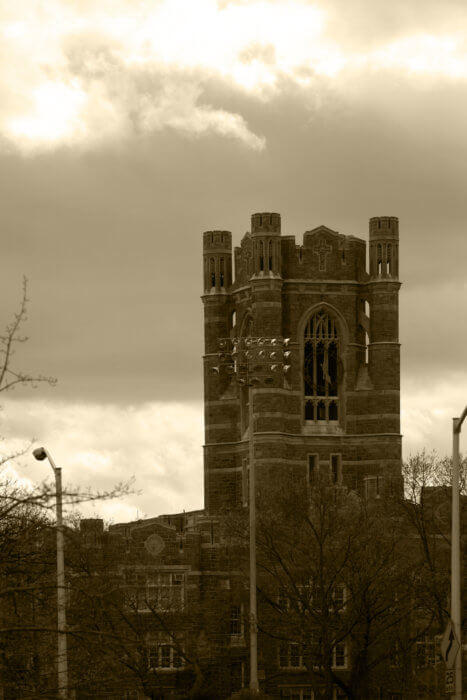
Czernyk, who admitted to drinking earlier in the night with friends and later smoking marijuana, said she never consented to sex with Bongiovanni.
“I woke up to him and me both fully naked and him penetrating me, his hairy chest in my face, and I was unable to think, speak or move. I was basically lifeless,” she detailed. “I was conscious for about 30 seconds before I passed out again. And then my only other memory (I recall) of the sexual encounter was when he was forcing me to give him (oral sex) and then I remember him putting on a condom before I passed out again. So, I really don’t remember more than a minute of the encounter.”
In New York State, the “Affirmative Consent” standard places the responsibility on the initiator of sexual activity to get a “yes” or otherwise ensure that consent is accepted before sexual contact is made. Czernyk acknowledged that since she was unconscious, she could not willingly give consent.
From the fear of being dismissed by law enforcement, institutional administrators or facing repercussions, whether personally, professionally or from the perpetrator themselves — many survivors of sexual assault often do not report their experiences.
Roughly 26.4% of female college students experience rape or sexual assault through physical force, violence or incapacitation, according to Rape, Abuse & Incest National Network (RAINN), the nation’s largest nonprofit anti-sexual assault organization. Unfortunately, only 20% of female student victims report the incident to college administrators and local law enforcement, and even when they do, there is no guarantee their claims will be handled in a timely manner.
But Czerynk said she refuses to be a statistic, and refuses to let what happened to her pass without accountability.
“I want justice, I want justice for his actions,” she said. “What he did was wrong … he raped me, he took full advantage of my unconscious body. And he needs to be held accountable for that.”
In the complaint, Czernyk’s attorneys state that Fordham’s decision to find Bongiovanni not liable during their investigation was “clearly biased and unsupported by the testimony and evidence it had discovered.”
According to Czernyk, the Bronx’s 46th Precinct declined to investigate her complaint for reasons that were not made clear. Czernyk filed a police report with the NYPD precinct on April 5, 2021.
A startling 60% of rapes went unresolved or unsolved by the NYPD in 2020, the highest rate of unclosed rape cases since the Department began publicly releasing that data in 2018.
For every 100 rapes and sexual assaults of teenage girls and women reported to police, only 18 lead to an arrest, according to a study conducted by three professors in the School of Criminology and Justice Studies. The decline in arrests also took place as the number of reported rapes dropped from 1,794 in 2018 to 1,427 in 2020.
A spokesperson for the NYPD didn’t return a request for comment on those statistics or why they did not follow through with Czernyk’s police report.
According to the complaint, Fordham University conducted an investigation where several witnesses corroborated that Czernyk was severely intoxicated that evening and messages that corroborated that Czernyk and Bongiovanni had sex that night.
Fordham University ultimately levied no disciplinary action against Bongiovanni — who has since graduated from the university. Fordham University declined to comment on their investigation and its process in investigating sexual assaults, citing pending litigation. The university is already under scrutiny for allegedly covering up the rape of a gay former Naval training student — who was attacked by the son of a high-ranking military officer, according to a new federal lawsuit that was filed in August.
“In March 2021, Czernyk finally found the courage to report Defendant to Fordham University,” an excerpt from the complaint reads, “unfortunately, the University’s response was severely inadequate.”
Czernyk alleges in the complaint that when she notified Fordham administrators about the incident in March, Bongiovanni took retaliatory efforts to keep her quiet, an allegation that Bongiovanni’s attorneys vehemently denied to the Bronx Times.
In the complaint and according to Czernyk, in April 2021, Bongiovanni had approached Czernyk at a party and put his hands up to her chest in a threatening manner. Bongiovanni’s legal team denied those claims, however.
Reporting of sexual assaults and rapes continues to be low, and advocates state that changes to Title IX by the U.S. Education Department ran by then-Education Secretary Betsy DeVos beefed up protections for accused college students, by mandating live hearings by adjudicators who are neither the Title IX coordinator nor the investigator, and real-time cross examination of each student by the other student’s lawyer or representative.
In defense of her rules, DeVos claimed her rollback of Title IX is one in which Title IX seriously addresses sexual violence and also requires fairness to the accuser and the accused.
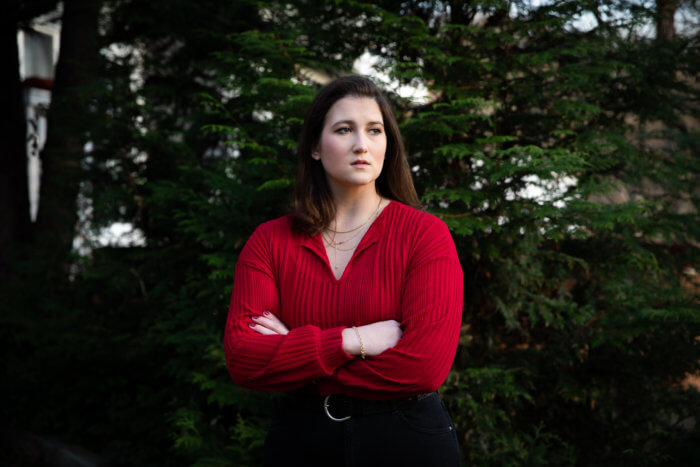
“Under the DeVos changes, we start seeing a power imbalance that favors the accused particularly if they come from a wealthy background, have a status of privilege and can afford to acquire the best representation to discredit survivors,” said Tracey E. Vitchers, executive director of It’s On Us, a nonprofit founded in 2014 as an initiative of the Obama administration to combat campus sexual assault through peer-to-peer prevention education programs.
The Obama administration expanded federal protections for student survivors, issuing directives in 2011 and 2014 meant to increase young women’s access to the reporting process, to more robustly enforce schools’ responsibilities to survivors, and to create supportive measures aimed at keeping survivors in school.
The DeVos rules make it mandatory for schools to have a more onerous reporting process for sexual violence than for any other kind of student conflict, holding sexual abuse claims to higher standards of evidence than other claims, and making it harder for survivors to enforce schools’ obligations, advocates say.
A report, from Know Your IX based on testimonials from 107 students who reported sexual violence to their schools over the past decade, described students dropping out of college, feeling suicidal and facing threats of defamation lawsuits from the accused. In fact, almost 40% of students who report their experiences of sexual violence to campus authorities are pushed out of school — forced to drop out, transfer or take a leave of absence in the wake of reporting.
For Czernyk, who was able to receive her diploma a year later and is still battling with post-traumatic stress disorder and depression associated with her assault, she hopes that reporting her story can empower other survivors in similar situations.
“I think that most women feel that level of shame and disgust when this happens to you. And that’s, I think that’s also a key component in terms of why women don’t report because talking to police officers about (a sexual assault) isn’t the most comfortable thing to do, you know,” she said. “But for me, I found the inner strength to report it because I knew that talking about it and bringing it to someone’s attention would make a difference.”
Reach Robbie Sequeira at rsequeira@schnepsmedia.com or (718) 260-4599. For more coverage, follow us on Twitter, Facebook and Instagram @bronxtimes.

